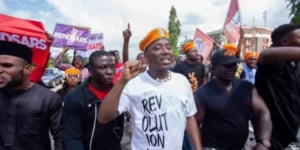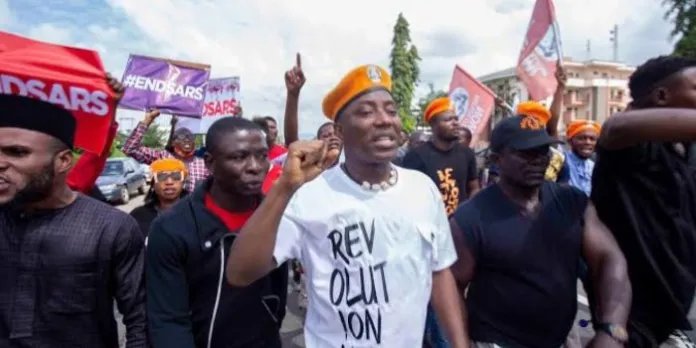Your Business Partner In Nigeria, Africa and all over the World
Imagine Omoyele Sowore, standing boldly in the streets, rallying crowds with charismatically clenched fists, demanding justice. The same man now stands before court, charged for daring to speak democracy—again. Nigeria watches, polarised: is he a martyr of free speech or a recurring disruptor unfit for the presidency?
This isn’t just another arrest—the latest one sparked outrage from the Nigerian Labour Congress (NLC) and opposition figure Atiku Abubakar, demanding his immediate release.
But beyond the headlines lies a bigger question: Can a man with multiple arrests ever truly lead Nigeria?
The Arrest Chronicles – A Life In Handcuffs
Sowore’s journey is, harshly, a tour of prison cells:
* 2019: Arrested for calling a nationwide #RevolutionNow protest.
* 2020: Charged with treason over similar activism.
* 2023–2025: Multiple arrests tied to speeches, media work, and disrupting government functions.
Each arrest galvanised youths—he was seen resisting state overreach.
But for others, it left an image of a perennial dissident, sometimes more performance artist than institution builder.
Supporters say:
* He’s the only one fearless enough to challenge power.
* Arrests are proof: the government fears his voice.
* Democracy needs fighters, not functionaries.
Opposition argue:
* Stability demands leaders who respect legal boundaries.
* Frequent bail and court drama distract from governance.
* Nigeria needs consensus builders, not courtroom regulars.
Technically: Being arrested isn’t a constitutional disqualification for presidency in Nigeria. But politically? It’s murkier.
Presidential campaigns don’t just ask What’s your vision?—they ask Is he reliable enough to respect the rule of law?
You May Like: JAMB Palava!!! Why Nigeria May Have Many School Dropouts Soon
Would powerful investors back a candidate entangled in court dates? Would global leaders respect a president often detained for expressing opinions?
1. Is fearlessness in journalism the same as steadfastness in leadership?
2. Does frequent protest equate to governance — or distract from duty?
3. Should democracy tolerate constant conflict—as long as it’s principled—or demand peace, even from its vocal leaders?
The burning question isn’t whether Sowore can be president legally—it’s whether Nigeria is ready for a head of state who is, by history, always on trial.
Your email address will not be published.





You must be logged in to post a comment.